For those who value the journey as much as the destination, the luxury sleeper train ‘Seven Stars in Kyushu’ (or the nanatsuboshi no Kyushu) is the best of both. Touring around the Japanese island of Kyushu over the course of four days and three nights, the Seven Stars sleeper train is the peak of luxury rail travel.
Table of Contents
ToggleSeven Seven
The Seven Stars is named as such for two main reasons. The first is in homage to the seven prefectures of Kyushu, Japan, of which the train travels around five, starting and ending in Hakata Station, Fukuoka.
The second is for the seven attractions of Kyushu. They are:
- Nature
- Food
- Hot Springs
- Cultural History
- Power Spots
- Body and Soul
- Trains
The Seven Stars aims to showcase these seven elements on its journeys, treating guests to a medley of activities, excursions, and foods from Kyushu. These range from meals by top chefs to live musicals and even pottery classes, with many chances to step off the train at key points and attractions.
Want to experience the flavors of Japan but can’t make the journey here? Let Sakuraco help. Sakuraco sends traditional Japanese snacks, sweets, teas, and tableware right to your home straight from local makers, so you can enjoy a taste of Japan anywhere!
Types of Journey
The Seven Stars has two main itineraries: the 4D2N and the 2D1N.
4D2N
The 4D2N is the four days, two nights version, and offers one night on the train itself and one night in a luxury ryokan (traditional Japanese inn). This plan tours leisurely across five prefectures in Kyushu, stopping off at various stations along the way.
The journey takes place on the scenic Hisatsu Orange Railway, where guests can enjoy beautiful Kyushu scenery as they travel. The railway is popular for its coastal views, and passengers can enjoy the countryside as they pass through.
The itinerary for the 4D plan is packed with activities and tours designed specially for Seven Stars passengers. From train station tours to city sightseeing and on-board workshops, the Seven Stars is catered towards those with an interest or fondness for Japanese or Kyushu culture.
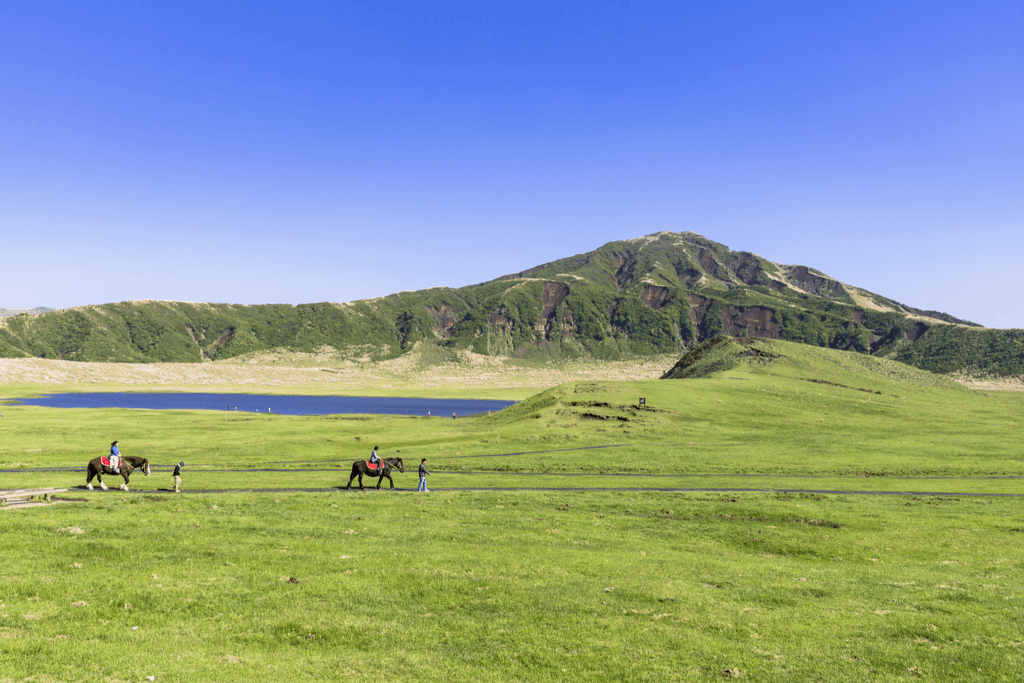
2D1N
The 2D1N option stands for two days, one night and treats passengers to a tour of the major tourist attractions of the five prefectures in the northernmost area of Kyushu.
On this tour, passengers visit Arita, an area in Kyushu known as the ‘gateway to Japan’ in bygone days, which saw a significant amount of travel and was one of the first to develop white clay pottery (such as Imari ware). Guests have the option of either visiting an Arita kiln, or staying on the train to participate in a kumiko woodwork (a woodworking style without nails) workshop.
Each day sees specially prepared food and stops at luxurious restaurants, especially for passengers to enjoy. With a mixture of French and Japanese cuisine, guests enjoy beautiful meals from top chefs for the entirety of the Seven Stars Kyushu experience.
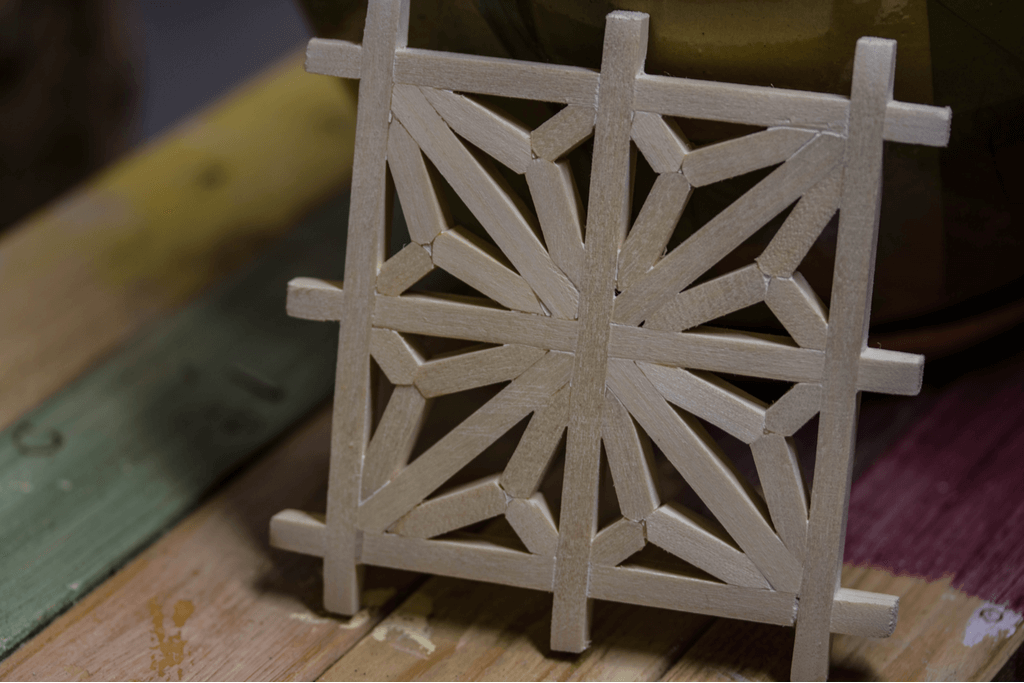
Seven Stars Dining
The food served on board Seven Stars reflects the image of luxury that the train encapsulates, with food from top Kyushu chefs and a mix of onboard and offboard dining. You may not see any of Kyushu’s regional ramen varieties, but the food will not disappoint.
The luxurious Seven Stars dining cars – Jupiter Dining Car and Blue Moon Lounge Car – are extra-special dining cars, featuring wood-paneled interiors and a grand piano. In the Blue Moon Lounge Car, guests can enjoy piano performances during the day and live musical accompaniment during dinner. The Blue Moon Dining Car serves drinks throughout the day, as well as dinner.
The first night on the four day plan sees a lunch of sushi, served at one of Kyuhsu’s top sushi restaurants, Yamanaka, made with fresh fish from the Genkai Sea. For dinner, guests are treated to a Japanese-Italian dish by top chef Tetsuya Kakehashi.
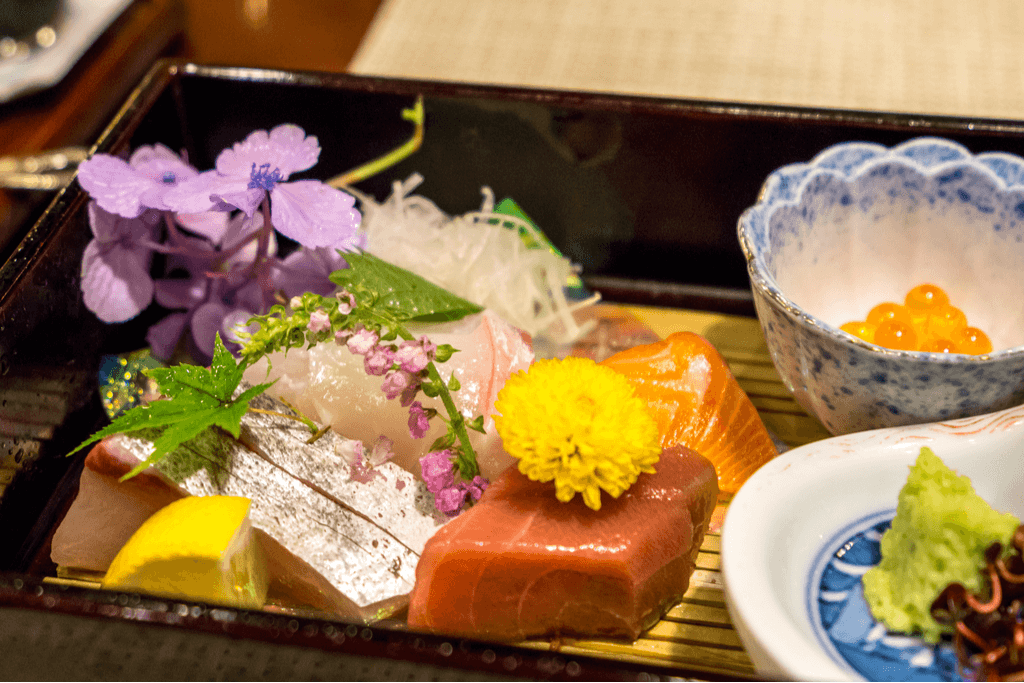
Breakfast for both plans includes a filling, organic breakfast made with locally grown produce at the Kasei restaurant in Aso, which was built especially for the Seven Stars, right next to the train tracks. Guests simply hop off, enter, eat, and can get right back onto the luxurious train straight away.
Other highlights include a lunch by Michelin-trained chef Kogishi, who uses exclusively Kyushu-sourced ingredients to craft colorful dishes, and dishes by the Seven Stars head chef, adept at creating beautiful bento (Japanese box meals) to suit the occasion.
Seven Stars Activities
As mentioned, each plan sees its own differing selection of hand-picked activities and entertainment, meaning that each trip is different.
The four- day plan includes sightseeing in Izumi as well as a shichitoi craft workshop on board the train. Guests stay at a local ryokan on the second night and are able to take in the local surroundings, including a nature day on day two, surrounded by the best of Kyushu nature.
The two-day plan sees a special tour to Kusasenri Plains in Aso, the region of Kyushu with an active volcano, as well as an onboard workshop and a nighttime tour of Nagasaki.
Seven Stars Interior
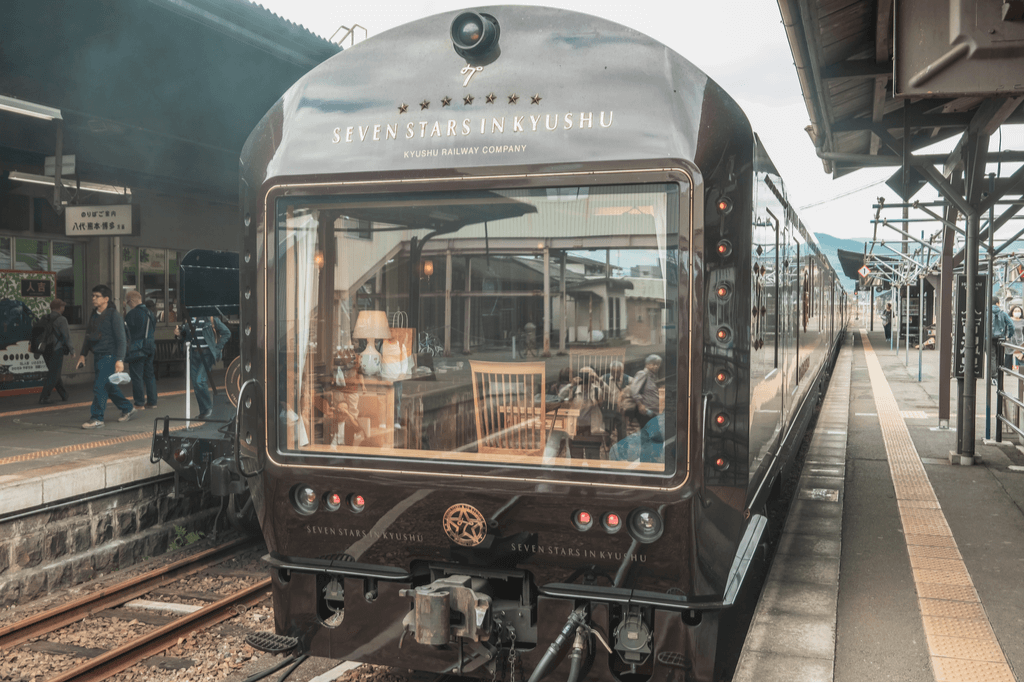
The train is the height of luxury, with a wood-panelled interior and sparkling crystal lights, plush furnishings, and fantastically designed rooms.
The guest rooms or carriages consist of 12 standard suites and 2 deluxe suites; some of the latter boasting a floor to ceiling rear window, where guests can enjoy the back view of the train as it speeds along.
Each room features a sleeping space, lounge area, and a private bathroom, so passengers needn’t move from their personal carriages unless for a scheduled activity. This makes it very popular with the Imperial Family, who often book out several carriages for their entourage.
Pricing
You were right in guessing that this train is not cheap. All inclusive, with fans including the Imperial Family and aristocracy, the prices reflect this height of luxury as the most expensive train in Japan.
A four night plan costs from ¥830,000 per person (approximately $7,000 USD).
A one night plan costs from ¥402,000 per person (approximately $3,500USD).
Better get saving…

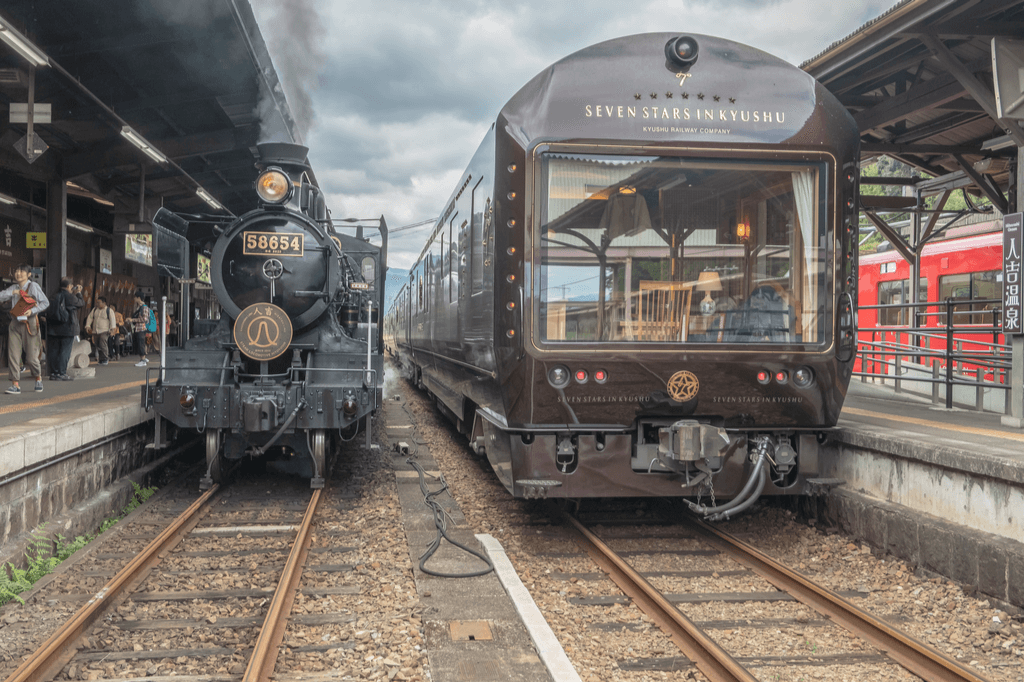


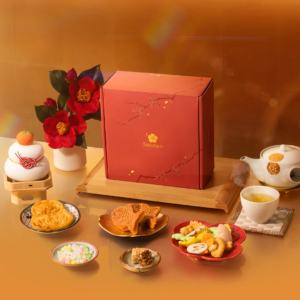
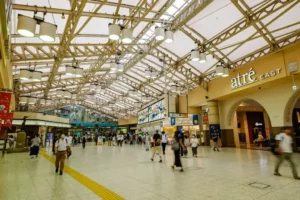
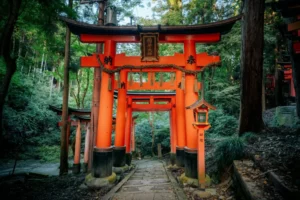




3 Responses
I need more details as I am very interested.
It’s very interesting, right? You can Google it and see more information about the Seven Stars! 😊
Just watched a one hour program on the Smithsonian channel regarding the Seven Stars train. It is part of the channel’s Mighty Trains series. Very informative.